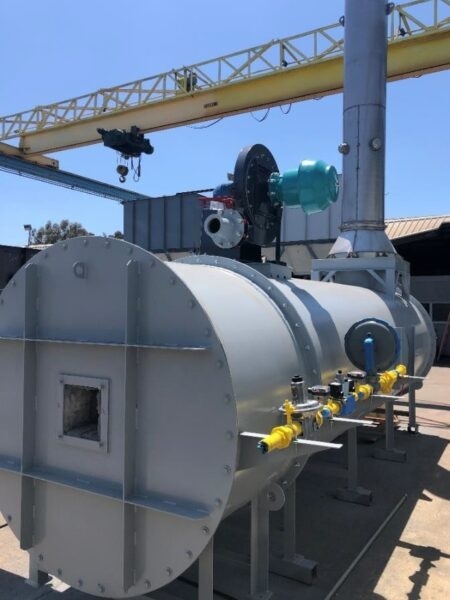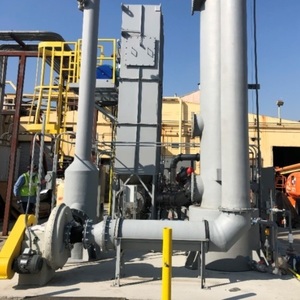Ship & Shore launches new engineering package for renewable fuels



SOURCE: Ship & Shore Environmental Inc.
June 29, 2021
BY Ship & Shore Environmental Inc.
Nearly 5 percent of the U.S. energy usage stems from biomass sources, and with the rising demand of sustainable energy alternatives, renewable fuel companies need help now more than ever – whether that means improving operational efficiency, avoiding air quality compliance fines, or reclaiming otherwise wasted energy that can improve the organization’s bottom line. To help in these pursuits, Ship & Shore Environmental Inc. (S&SE), a multinational environmental pollution abatement and energy solutions firm, now offers clients in the renewable fuels sector a comprehensive engineering package to assist with their volatile organic compound (VOC) and odor abatement efforts.
Focus and offerings
Renewable fuels span a wide spectrum from wind and solar to hydrogen and methanol. However, a key segment of that spectrum occupied by ethanol, biofuels (derived from biomass, such as starch crops or fats), and biogas (methane captured from anaerobic digestion of organic materials) needs particular help in controlling pollution.
Fortunately, S&SE has considerable expertise in deploying abatement solutions for these industries. Just within the last two years, the company installed several air pollution control systems for biogas clients. These projects included regenerative thermal oxidizers (RTOs), quench towers, and other scrubber systems designed to control pollutants from gas streams. Collectively, S&SE’s abatement equipment help renewable fuel companies control gaseous waste, including acidic emissions.
Advertisement
Ship & Shore Environmental’s engineering package for renewable fuel clients covers a range of benefits:
• Complimentary assessment of the pollution abatement project. This can help avert missteps that might be costly to correct later in the project while also helping ensure that the client has accurately forecasted project costs and logistics.
• Discounted project engineering and design.
• Custom engineering and design of a regenerative thermal oxidizer or direct-fired thermal oxidizer (DFTO) system.
Advertisement
• A waste energy recovery solution. This can significantly impact total operational energy costs.
To showcase this new campaign, S&SE will be exhibiting at the upcoming Fuel Ethanol Workshop & Expo (FEW) in Des Moines, IA, from July 13 to 15. Now in its fourth decade, the FEW event stands as one of the industry’s largest and most renowned resources for industry learning, technology reveals, and valuable networking. Visit Ship & Shore’s Booth #429 and set up meetings with S&SE at the event, interested parties can contact sales@shipandshore.com.
Related Stories
Neste and DHL Express have strengthened their collaboration with the supply of 7,400 tons (9.5 million liters) of neat, i.e. unblended, Neste MY Sustainable Aviation Fuel to DHL Express at Singapore Changi Airport starting July 2025.
CoBank’s latest quarterly research report, released July 10, highlights current uncertainty around the implementation of three biofuel policies, RFS RVOs, small refinery exemptions (SREs) and the 45Z clean fuels production tax credit.
The U.S. Energy Information Administration maintained its forecast for 2025 and 2026 biodiesel, renewable diesel and sustainable aviation fuel (SAF) production in its latest Short-Term Energy Outlook, released July 8.
XCF Global Inc. on July 10 shared its strategic plan to invest close to $1 billion in developing a network of SAF production facilities, expanding its U.S. footprint, and advancing its international growth strategy.
U.S. fuel ethanol capacity fell slightly in April, while biodiesel and renewable diesel capacity held steady, according to data released by the U.S. EIA on June 30. Feedstock consumption was down when compared to the previous month.
Upcoming Events










